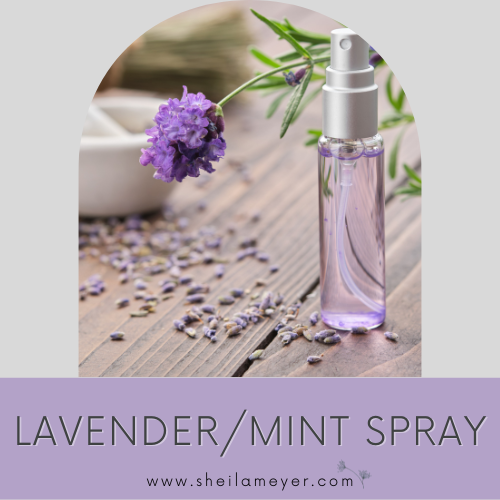
Beat the Heat of July
Stay cool and refreshed this July as this exclusive newsletter aims at helping you beat the scorching summer heat! With temperatures soaring, it's time to unlock the secrets of ultimate relaxation and find solace in the cool breezes of the season. Say goodbye to sweaty days and hello to the rejuvenating power of nature's best-kept secrets. Join me as I dive into tips and tricks to help you embrace the summer season with ease. Don't let the heat weigh you down – let's embark on a journey to reclaim your summer bliss!
Why is this important?
Summer heat can make you feel tired, sticky and irritable. If you have certain medical conditions, it can also be dangerous.
- Heat exhaustion and heatstroke are serious health risks that can occur when our bodies overheat. These conditions can lead to dizziness, nausea, confusion, and even loss of consciousness. By keeping yourself cool, you significantly reduce the chances of experiencing these dangerous heat-related illnesses.
- Staying cool allows your body to function optimally. Excessive heat can cause our bodies to work harder to regulate internal temperatures, leading to exhaustion and fatigue. By creating a cool environment, you give your body the opportunity to maintain a balanced internal temperature, resulting in increased energy levels, mental clarity, and productivity.
- Staying cool also promotes better sleep, which is essential for our overall health and well-being. As the temperatures rise, it becomes more challenging to relax and fall asleep. A cool environment can help you achieve a restful night's sleep by regulating your body's temperature and promoting a more comfortable and peaceful sleep experience.
- Staying cool in July heat allows you to enjoy all the wonderful outdoor activities the summer season has to offer. Whether it's a picnic in the park, a day at the beach, or a hike in the mountains, keeping cool ensures that you can fully embrace and savor these memorable moments without feeling overwhelmed by the heat.

Water
- Avoid drinks with alcohol, caffeine or lots of sugar. These are all dehydrating. The heat does enough of this for you already!
- You may need to drink more water than normal, especially if exercising or sweating more than the usual amount.
- Foods with high-water content are not only enjoyable and refreshing but also hydrating.
- Water is the best for hydration. However, sometimes more than water is needed. Learn more about the importance of electrolytes here.
- Make drinking water more enjoyable by adding citrus oils like lemon, lime, tangerine, orange or grapefruit.
- Placing a cold, wet washcloth or a bag filled with ice on your forehead, back of your neck or on your wrists can cool you down pretty quickly. Be sure to place a towel between the ice and your skin.
- Spray yourself with water. Spritzing yourself with some cool water can keep you comfortable. As the water evaporates on your skin, it cools you.
- Place a shallow bowl of ice in front of a fan to create your personal AC that will cool off the air circulating through the room.
Food
- Skip heavy meals or foods with a lot of fat that can tax your digestive system and make you feel sluggish. Instead, opt for fresh foods with a high water content, such as fruits and vegetables. These foods are not only delicious but also help keep you hydrated and refreshed.
- You may think that eating spicy foods would heat you up, but it actually has the opposite effect. The capsaicin in hot chili peppers, for example, causes you to sweat more easily. As your sweat evaporates, it helps to cool you down.
- Hot weather can often lead to inflammation in the body, making you feel uncomfortable and sluggish. Combat this by including anti-inflammatory foods in your meals. Turmeric, ginger, garlic, berries, and green tea are great options that can help reduce inflammation and keep you feeling cooler from the inside out.
- Certain herbs and spices possess cooling properties that can help regulate body temperature. Incorporate cilantro, mint, basil, and fennel into your recipes to add a refreshing twist while aiding in natural cooling.


Sweat
As the temperature rises, our bodies have a remarkable way of adapting to keep us cool and comfortable. One of the most effective natural cooling mechanisms that our bodies rely on is sweating. Sweating is the process by which our body releases heat through the evaporation of moisture on our skin. It plays a crucial role in maintaining our internal temperature and preventing overheating.
First and foremost, sweating helps regulate body temperature. When we engage in physical activity or face hot environmental conditions, our internal body temperature starts to rise. In response, the brain stimulates the sweat glands located throughout our skin to produce sweat. As the sweat evaporates, it absorbs excess heat from our bodies, effectively cooling us down.
Moreover, sweating helps maintain proper hydration levels. Our bodies are composed of a significant amount of water, which is essential for various bodily functions. When we sweat, we lose fluids and electrolytes, particularly sodium. By sweating, we prevent the accumulation of excessive heat, and this fluid loss prompts us to replenish our bodies by drinking water or electrolyte-rich beverages. Staying hydrated aids in maintaining our overall well-being and preventing dehydration, which can have negative impacts on our health.
- Opt for loose, light-colored clothing made of fabric designed to wick away moisture or light, loose-fitting cotton. The goal is to allow the sweat on your skin to evaporate quickly.
- Hotter temperatures doesn't mean exercising needs to stop. A few modifications may be all that is needed. Avoid the heat by working out during the coolest part of the day such as early morning or in the evening. Select cooling activities like swimming or taking your exercise routine indoors where it is air conditioned.

Help replenish, renew, and promote healthy skin with LavaDerm Cooling Mist, The soothing aroma and refreshing feel make it ideal to take on any hike, to the pool, camping, or wherever your skin needs a little extra love.
Contains Aloe, Lavender, Norther Lights Black Spruce, Helichrysum and a complex of minerals to moisturize the and replenish lost minerals.
Tip: Try applying the spray after a warm shower when your pores are more open to freshen yourself up. For an added cooling effect, keep your LavaDerm in the fridge.

Lavender essential oil is great for skin healing and sunburn relief. Peppermint oil has a cooling, refreshing, and invigorating effect. This makes a great after sun spray too.
- 15 drops Lavender essential oil
- 10 drops Peppermint essential oil (or Spearmint)
- 2 tablespoons Aloe Vera Gel (adds moisture)
- Distilled water
- 4 oz glass spray bottle
Add essential oils and aloe vera gel, swirl bottle to mix. Fill the rest of the bottle with distilled water. Shake well to mix together and before each use.

Cherry Basil Bruschetta (AIP/Paleo) uses cherries instead of tomatoes for something unique! Top your favorite GF bread, or grilled jicama. Full recipe here.
- 2 cups pitted, chopped cherries*
- 1/4 cup chopped fresh basil + 1 drop Basil essential oil for added pop of flavor
- 3 cloves garlic, minced (about 2 tablespoons)
- 2 TBSP extra virgin olive oil + more for brushing
- 1 tsp balsamic vinegar
- 1/2 tsp sea salt + more for sprinkling
- 1 jicama
Combine cherries, basil, garlic, olive oil, vinegar, and salt. Set aside to let the flavors meld. Peel jicama, and slice into 1/4-inch slices. Heat grill to 450 degrees F. Brush jicama slices on both sides with olive oil. Salt them on each side. Grill jicama 1 minute per side. Serve the cherry basil mixture on top of grilled jicama slices (or your favorite GF bread).
Are you ready to beat the heat and stay cool this summer?
Look no further!
Click the link below for a collection of products that will keep you refreshed and rejuvenated all season long and discover your secret to staying cool under the sun. Don't miss out on this opportunity to make this summer your coolest one yet!






